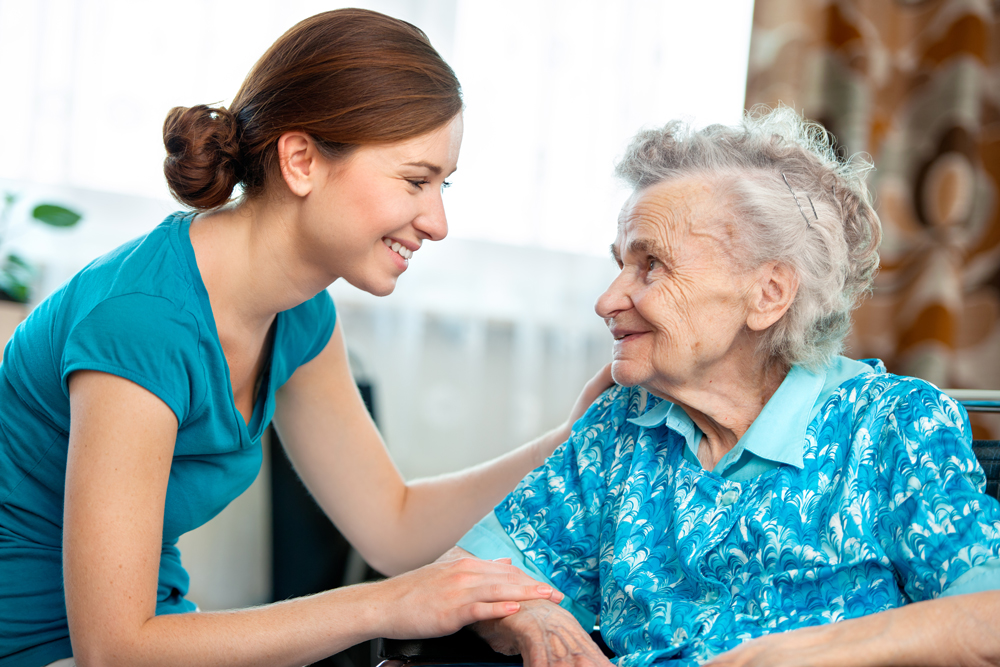With more and more families dispersed geographically, adult children who live far away from their elderly parents face ongoing worry about their health and safety. As aging parents, particularly those who live alone, face medical and mobility issues, questions relating to their physical, social and psychological well-being arise. How do you know if a parent’s needs have changed and more care is necessary?
Adult children should be aware of any changes in their parents’ attitudes or behavior— changes which are often undetectable over the telephone. There are, however, clear warning signs that some type of intervention is needed.
- Mail and bills are left to pile up. The simple act of opening and filing mail becomes overwhelming. Managing a checking account can also become too much for a parent to handle.
- The house is cluttered or unkempt. This is especially troubling if a parent has always been neat and orderly.
- Food in the refrigerator is uneaten or spoiled. Shopping, cooking, and cleaning become too much trouble. A parent might eat just enough to get by, but suffer nutritionally. Losing weight can be another sign that a parent is not eating a nutritious diet.
- Signs of scorching on the bottoms of pots and pans. A result of short-term memory loss, this is a dangerous sign that parents are forgetting about pots left on the stove, causing a fire hazard, and threatening both the individual’s and the surrounding neighbors’ safety.
- The parent wears the same clothing over and over again and has other personal hygiene issues. Doing laundry has become physically challenging, particularly if the washing machine is in the basement. Or there may be a fear of falling in the tub or shower.
- Missed doctor’s appointments. Sometimes this is simply a product of not having transportation and not knowing how to access ride options.
- Repeated phone calls at odd hours. When a parent telephones friends or family at odd hours, it may be a sign of memory loss, or a cry for help— a sign of depression or isolation. Arranging for a daily check-in phone call, a regular volunteer visitor, or getting involved with a local senior center, could make all the difference.
- Forgetting to take medication. A sign of short-term memory loss or depression, this isn’t just a quality of life issue, but a real risk factor.
- Inappropriate behavior, clothing or speech. You may hear about this from a neighbor, someone who has noticed that your parent is not dressing appropriately for the weather, for instance. That’s a sign that he or she might be confused.
- Symptoms of depression. A frequent problem for many older people, who feel isolated and alone, like a prisoner in their own homes, depression causes marked changes in behavior and routine. Feelings of hopelessness or despair, lack of interest in once pleasurable activities, crying, listlessness, and not wanting to get dressed can all be indications of a problem.
Once adult children decide that a parent needs assistance, the next step is determining what kind. Adult daycare, meal delivery, psychiatric counseling, home health services, home safety modifications, interaction at a senior center, installing an emergency response service—these are just a few things that can make a big difference to an older adult living alone, who most likely wants to remain at home. Assisted living isn’t always the only answer.
Consider consulting a geriatric care manager. Care managers work closely with each elderly parent and his or her family, making a detailed assessment to find out what solutions are needed—and will be more likely accepted. In addition, a care manager can often help a parent understand the need for change.
Resistance to any kind of change is common, especially among the senior population. That’s where having an objective third party involved can be helpful. Geriatric care managers can make this time of transition easier for everyone. Even if adult children live out of the area, we can be their eyes and ears so a parent’s everyday well-being will no longer be such a worry.
Article by: Lenore Borowski. Lenore Borowski is a geriatric care manager for Senior Horizons, a private-pay program of Jewish Family and Children’s Service of Greater Philadelphia, which is a constituent of the Jewish Federation of Greater Philadelphia.




